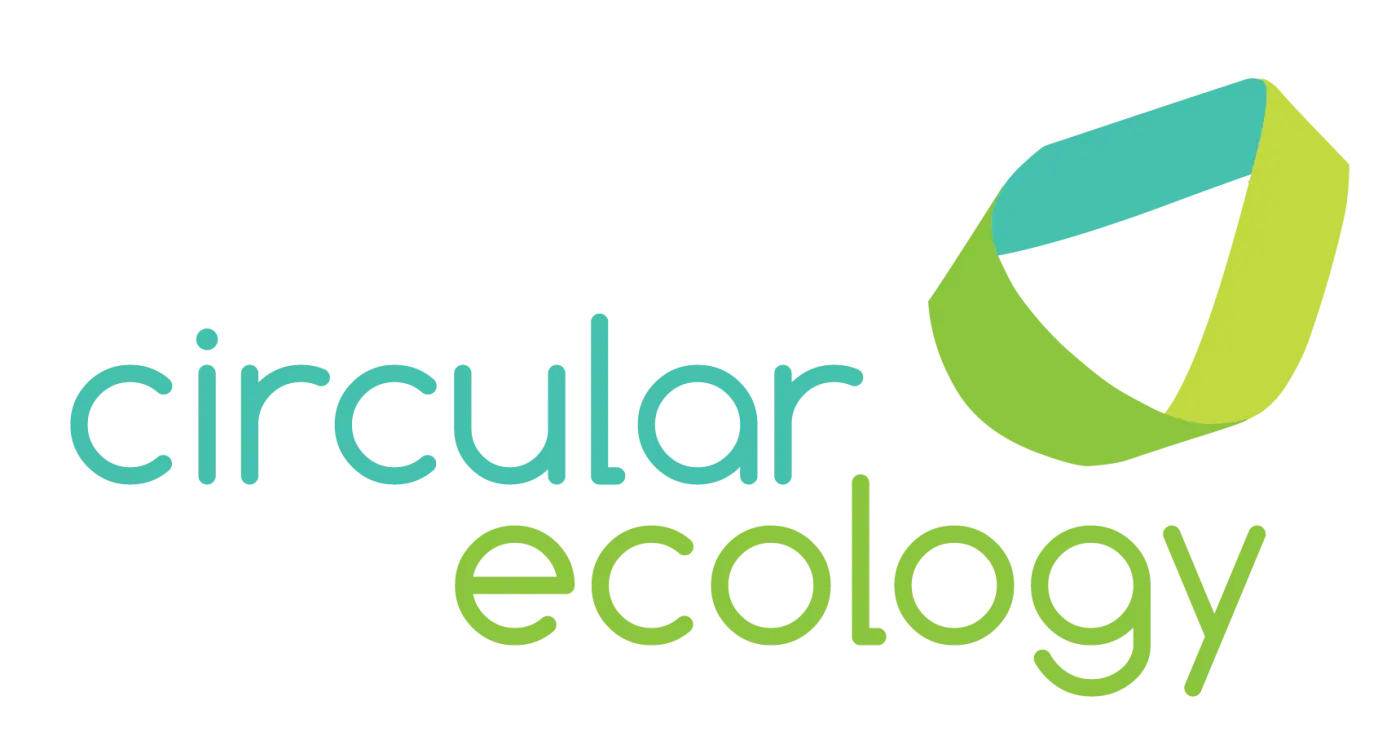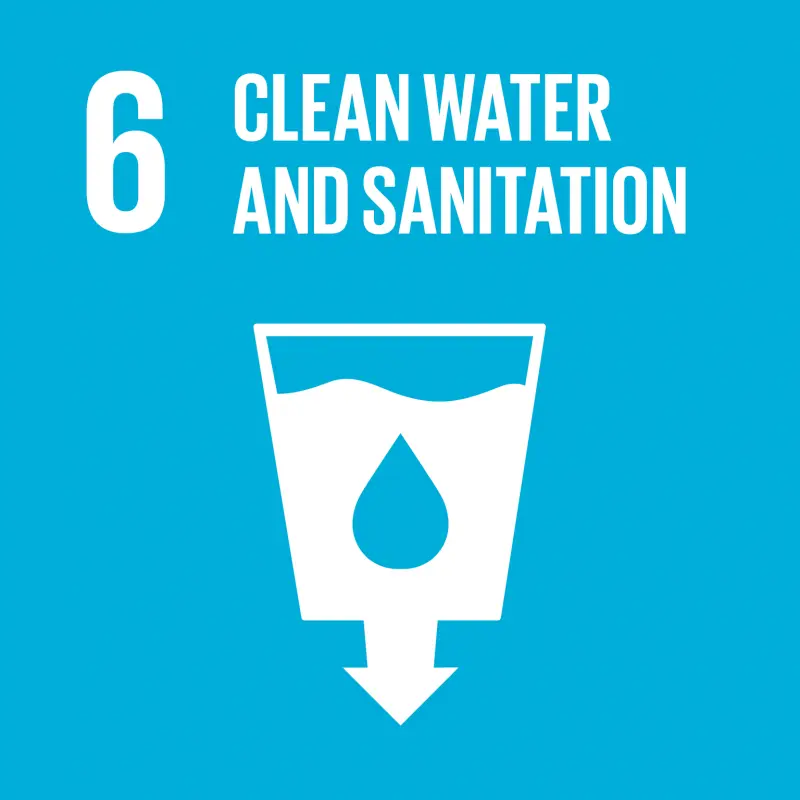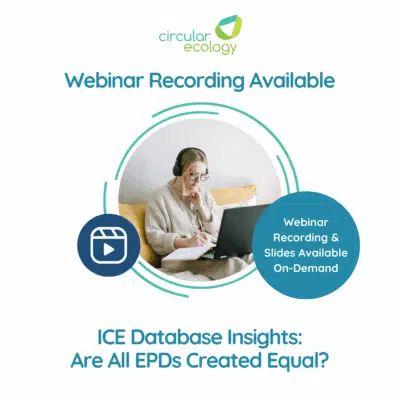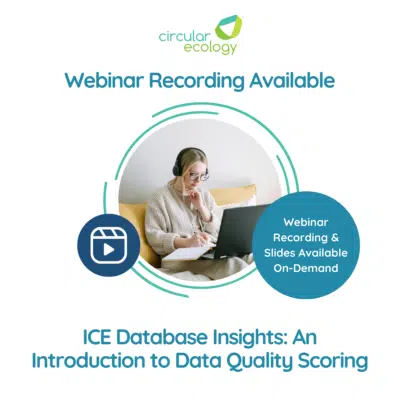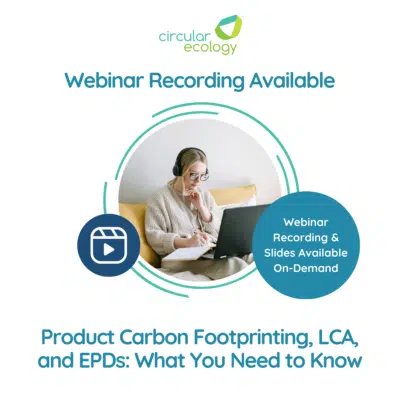An Introduction to the UN Sustainable Development Goals
The UN Sustainable Development goals have become an essential part of the toolkit for responsible businesses and sustainability professionals. They were developed when the United Nations Member States gathered to decide on the successors of the Millennium Development Goals, in 2015.
Their aim was to protect the planet, ensure peace and prosperity for all and to end poverty, all by 2030. The 17 UN Sustainable Development Goals were born.
Based on the premise to “Leave No One Behind”, the UN Member States committed to fast-tracking progress for those further behind, starting with bottom-of-the-pyramid goals such as eradicating poverty and hunger.
The 17 goals are interconnected and recognise the impact that improvement in one single goal can have on many others.
Why are the SDGs important for businesses?
The SDGs depend on the contribution of all actors, from country leaders to single individuals. Effective engagement from the private sector is essential for the success of the 2030 Agenda.
Business plays a critical role in the achievement of the SDGs as:
- A source of finance;
- A driver of innovation and technology;
- An engine of economic growth and employment.
Companies can capitalize on the SDGs in different ways:
- Identifying future business opportunities;
- Enhancing the value of corporate sustainability;
- Strengthening stakeholder relations and keeping the pace with policy developments;
- Stabilizing societies and markets;
- Using a common language and shared purpose.
In order to identify in which areas of the business a company can contribute to the SDGs, it is important to map out its value chain. Below, and example by SDG compass shows how in each phase of the value chain there is potential for impact.
An introduction to each of the 17 UN SDGs is provided below.
UN SDG 1: No Poverty
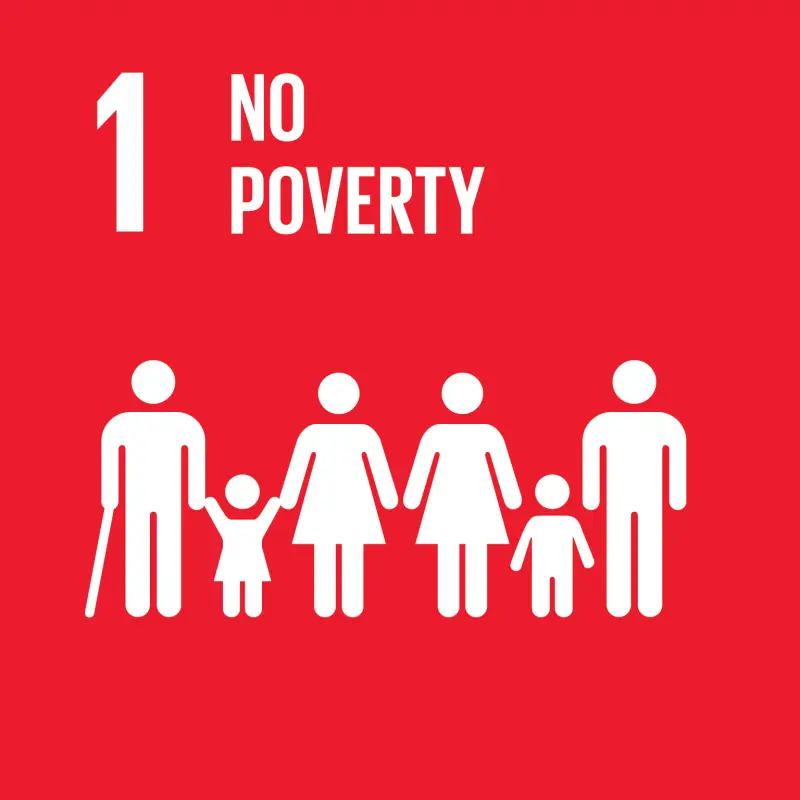
Ending poverty in all its forms everywhere.
Global Poverty is now expected to increase for the first time since 1998, in consequence of the COVID-19 pandemic.
Progress was being made on this goal under the Millennium Development Goals. According to the World Bank, in 2015, 10 percent of the world’s population or 734 million people lived on less than $1.90 a day. That’s down from nearly 36 percent or 1.9 billion people in 1990. However, there is still much work to be done.
How businesses can contribute to SDG 1, improving no poverty:
- Develop products and services tailored for poor customers;
- Improve access to basic goods and services for people living in poverty;
- Invest in business-driven poverty eradication activities.
UN SDG 2 – Zero Hunger
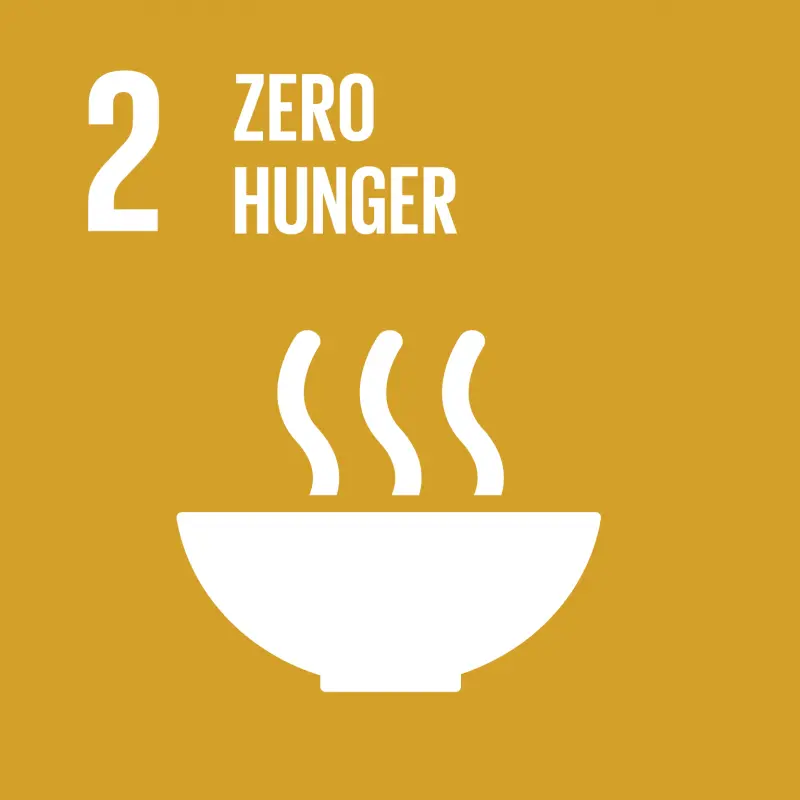
End hunger, achieve food security and promote sustainable agriculture.
Up until recently, SDG 2 zero hunger was the only of the 17 goals moving in a progressive direction. Unfortunately, hunger is once more on the rise and millions of children are undernourished. In fact, 1 in 9 people worldwide suffered from undernourishment in 2017, almost 40 million more than in 2015.
How businesses can contribute to SDG 2, improving zero hunger:
- Invest in sustainable agricultural technology, intensifying collaboration with academic as well as scientific institutions;
- Foster knowledge, experience and data sharing among businesses and other actors, contributing to global data platforms collecting and sharing agricultural information and statistics with all actors along the agricultural value chain including farmers;
- Upholding highest standards of sustainably in sourcing practices, enhancing traceability of commodities and demonstrating transparency in agricultural supply chain.
UN SDG 3 – Good Health and Well-Being
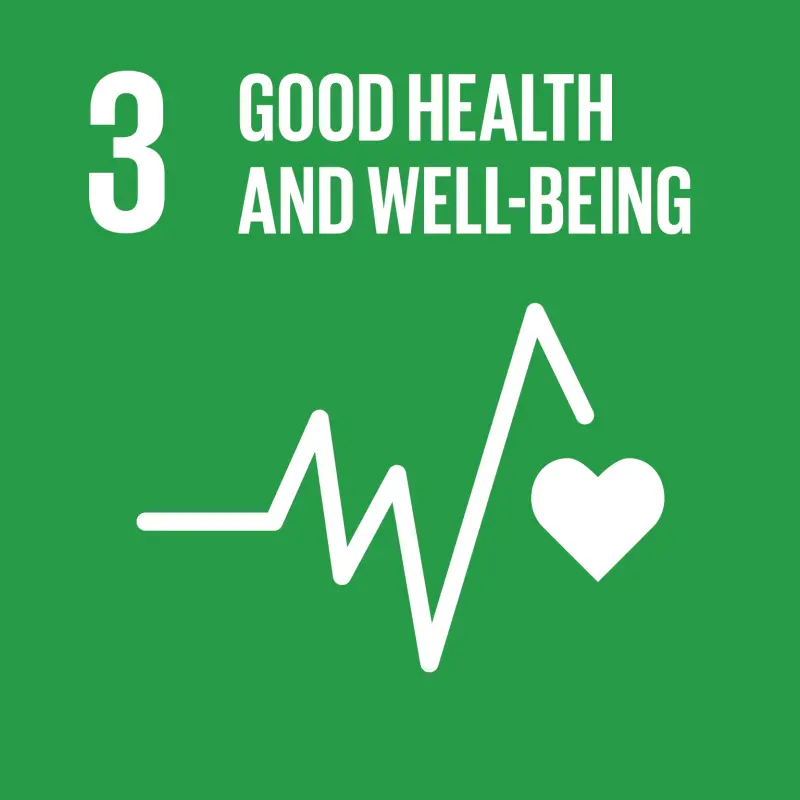
Ensure healthy lives and promote well-being for all at all ages.
Whilst in the past decade major progress has been made towards improving life expectancy and the eradication of certain diseases, big challenges still remain. At least half of the population does not have access to essential health services, and many of those who do are put under financial pressure.
How businesses can contribute to SDG 3, improving good health and well-being:
- Partner with health care NGOs and public clinics to raise awareness and increase access to targeted health services for women and men workers and their families;
- Make investments in health a priority in business operations;
- Facilitate and invest in affordable medicine and health care for low-income populations.
UN SDG 4 – Quality Education
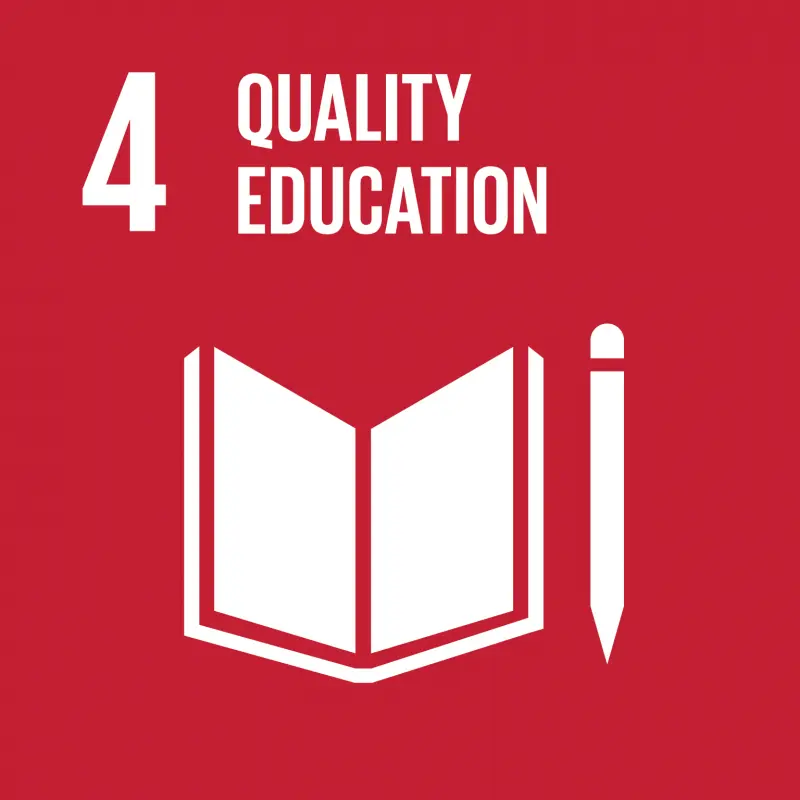
Ensure inclusive and equitable quality education and promote lifelong learning opportunities for all.
Ensuring quality education for is on the base of achieving sustainable development. In 2016, 750 million adults remained illiterate, two thirds of them being women. And, although more and more children are going to school, many developing countries still lack basic infrastructure and facilities to provide effective learning environments.
How businesses can contribute to SDG 4, improving quality education:
- Establish relationships with government entities and higher education institutions to improve education curricula to better align with business needs including responsible management;
- Create programs (e.g., internships, work-study programs, traineeships, etc.) that give students earlier access to the corporate environment;
- Provide employees with continuous opportunities to improve their skills for their current and future employment.
UN SDG 5 – Gender Equality
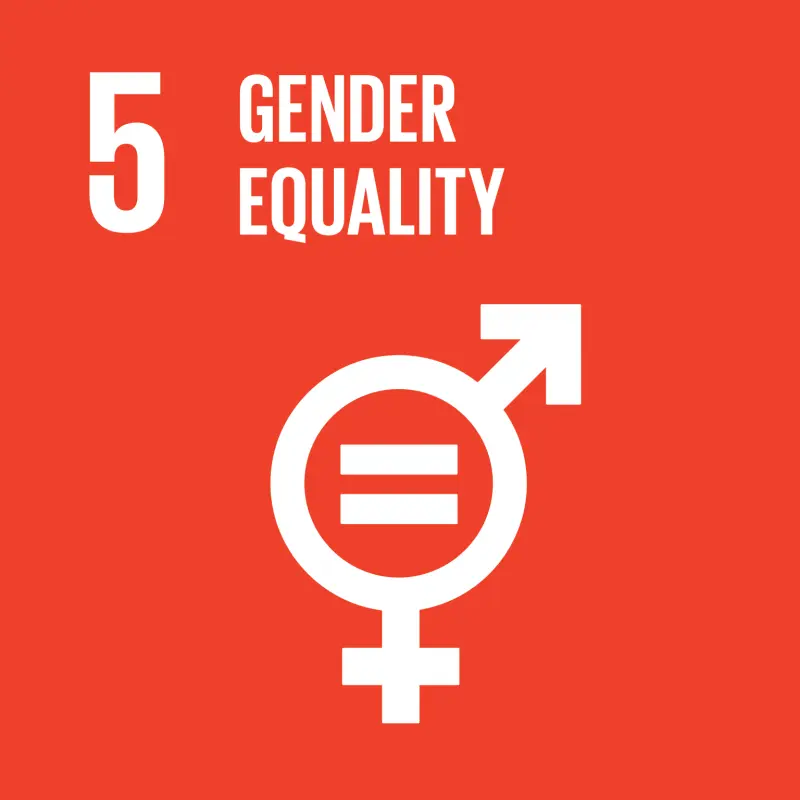
Achieve gender equality and empower all women and girls.
Gender inequality is a plague affecting not only developing countries, but still very prevalent in developed areas as well. In 2019, only 29% of managerial positions were occupied by women and, as of January 2019, the average representation of women in parliamentarian seats stood at 24.2%.
How businesses can contribute to SDG 5, improving gender equality:
- Assure sufficient participation of women – in decision-making and governance at all levels and across all business areas;
- Pay equal remuneration, including benefits, for work of equal value and strive to pay a living wage to all women and men;
- Establishing a zero-tolerance policy towards all forms of violence at work, including verbal or physical abuse and prevent sexual harassment.
UN SDG 6 – Clean Water and Sanitation
Ensure availability and sustainable management of water and sanitation for all.
In 2017, only 60% of people worldwide had access to basic hand washing facilities and soap at home, and 9% of the population still practised open defecation. Shockingly, in 2018, more people owned a mobile phone than a toilet.
How businesses can contribute to SDG 6 clean water and sanitation:
- Prioritise water efficiency across operations by installing best practice technologies for water conservation, in particular in water scarce areas;
- Reduce the likelihood of groundwater contamination by treating and processing all waste with exceptional precaution, according to local and federal guidelines;
- Invest in water and sanitation projects or infrastructure in under-served regions.
UN SDG 7 – Affordable and Clean Energy
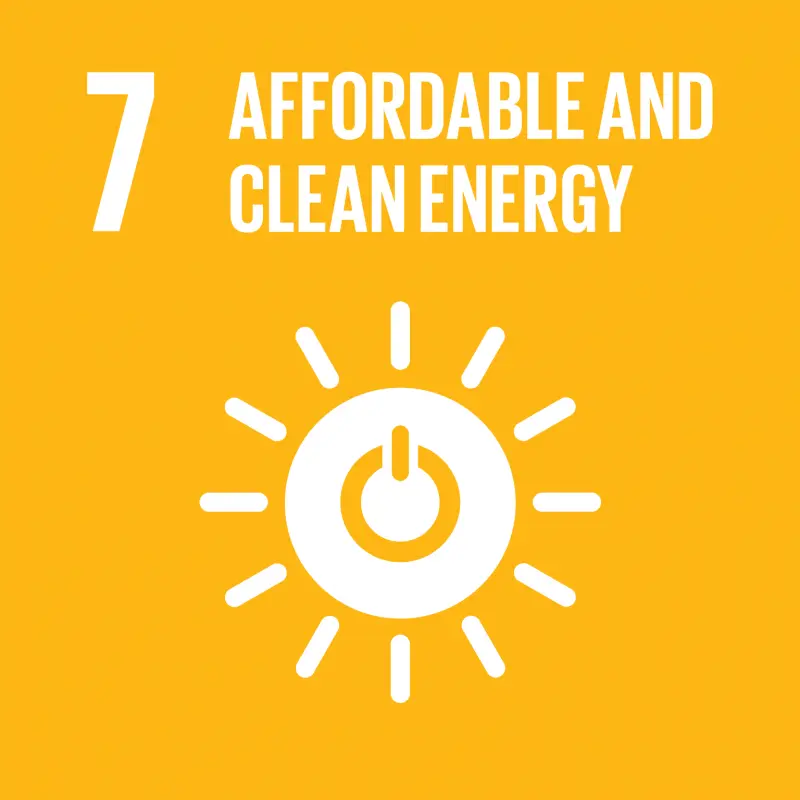
Ensure access to affordable, reliable, sustainable and modern energy for all.
Few things work today without access to energy. For instance, reading this article wouldn’t be possible without it. However, over 800 million people worldwide remain without electricity.
The type of energy we rely on is also of high concern, and the switch to renewable sources is now more important than ever.
How businesses can contribute to SDG 7, affordable and clean energy:
- Commit to sourcing 100% of operational electricity needs from renewable sources;
- Reduce the internal demand for transport by prioritising telecommunications and incentivise less energy intensive modes such as train travel over auto and air travel;
- Invest in R&D related to sustainable energy services, bringing new technologies to the market quickly.
UN SDG 8 – Decent Work and Economic Growth
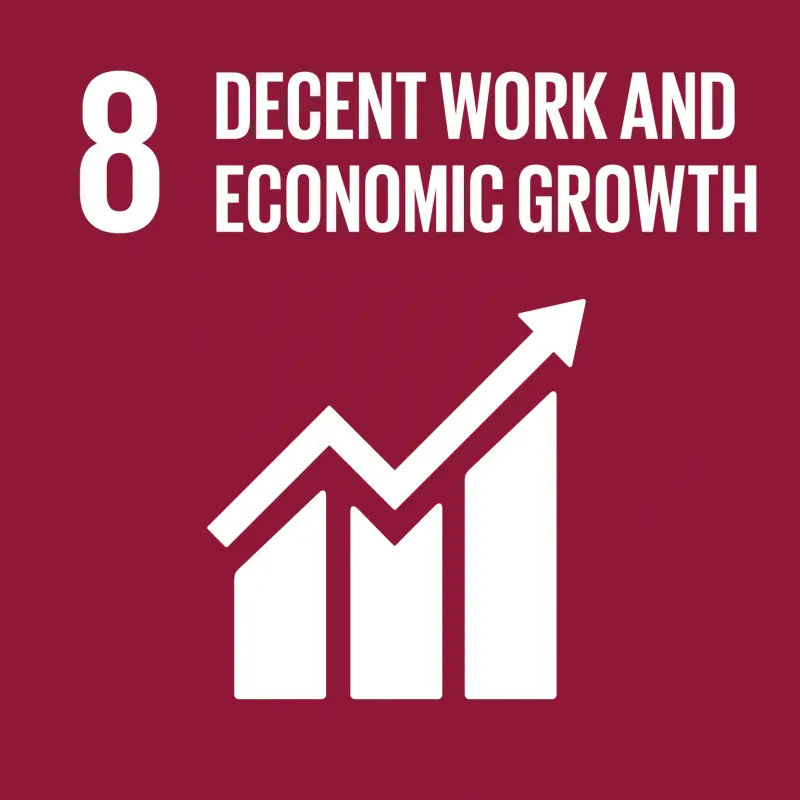
Promote sustained, inclusive and sustainable economic growth, full and productive employment and decent work for all.
Over 60% of workers worldwide lacked any kind of employment contract in 2015, and nearly half of the world’s population still lives on less than $5.5 a day (2018). Some groups – such as women, youth, migrants and people with disabilities – face even more obstacles to decent work. The median hourly gender gap stood at 12% in 2019.
How businesses can contribute to SDG 8, decent work and economic growth:
- Offer apprenticeship opportunities;
- Initiate skills development programs moving down company supply chains;
- Install a firm policy against unfair hiring and recruitment practices, particularly of vulnerable groups such as migrant workers.
UN SDG 9 – Industry, Innovation and Infrastructure
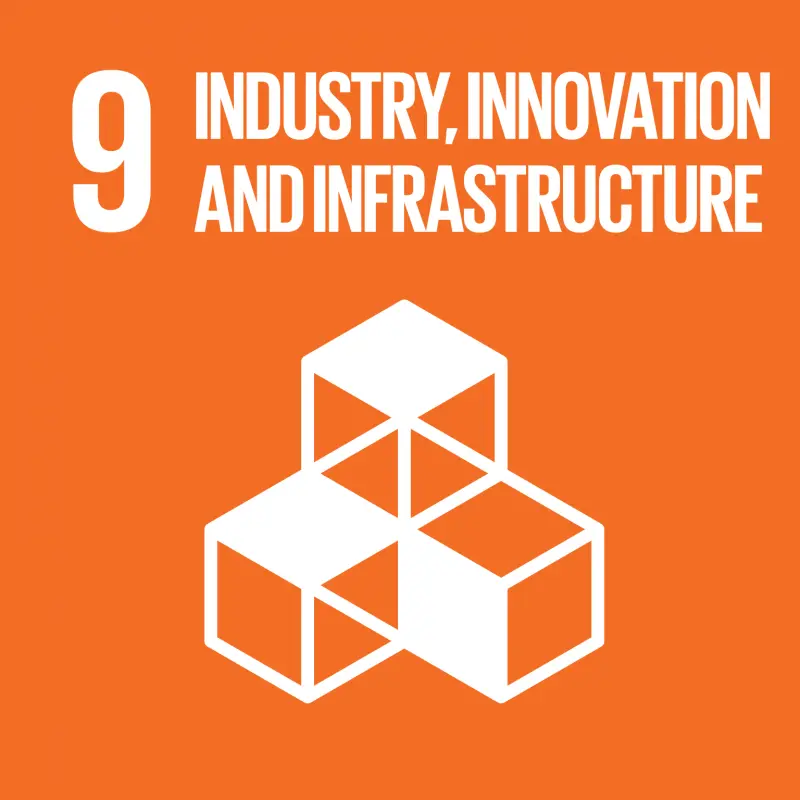
Build resilient infrastructure, promote inclusive and sustainable industrialisation and foster innovation.
Basic infrastructure like roads, information and communication technologies, sanitation, electrical power and water remains scarce in many developing countries. And while 90% of people live within range of 3G or better, not all can afford to use it.
How businesses can contribute to SDG 9, industry, innovation and infrastructure:
- Invest in new, resilient infrastructure in developing countries or retrofit existing infrastructure to make it more sustainable;
- Expand the geographic reach of research and development facilities, bringing R&D capabilities to developing countries;
- Promote innovation by giving all stakeholders the opportunity to offer creative solutions to sustainability challenges.
UN SDG 10 – Reduced Inequalities
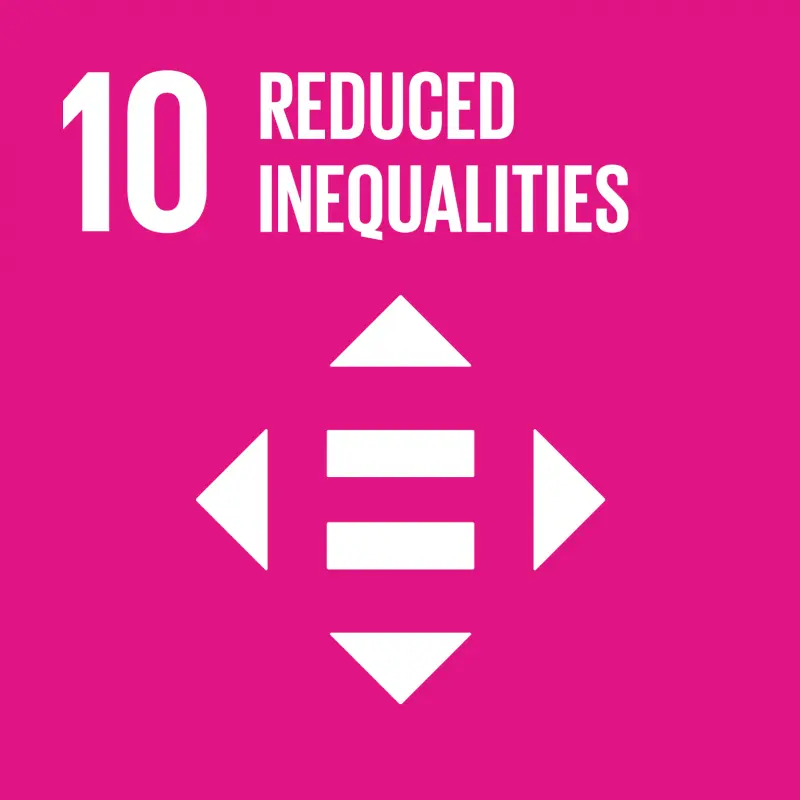
Reduce inequality within and among countries.
Social protection has been significantly extended globally, yet persons with disabilities are up to five times more likely than average to incur catastrophic health expenditures. In 2019, it was estimated that the richest 1% of the world’s population controlled 44% of global assets, while the poorest 57% owns just 2%.
How businesses can contribute to SDG 10 reduced inequalities:
- Improve access to basic goods and services for people living in poverty;
- Invest in business-driven poverty eradication activities;
- Partner with civil society networks to provide education and entrepreneurial skills training.
UN SDG 11 – Sustainable Cities and Communities
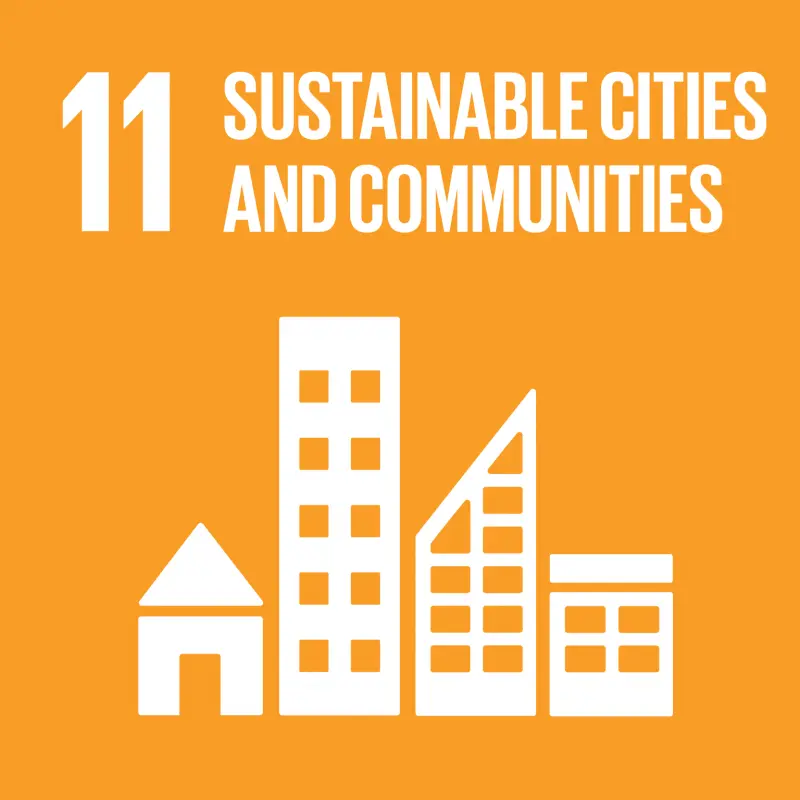
Make cities and human settlements inclusive, safe, resilient and sustainable
By 2050, it is projected that 68% of the world’s population will live in cities. However, in 2018, almost 1 out of 4 urban residents lived in slum-like conditions and 2 billion people worldwide did not have access to waste collection services. Today, 90% of urban residents breathe polluted air.
How businesses can contribute to SDG 11, sustainable cities and communities:
- Collaborate with cities and governments to find solutions to future mobility needs that minimise environmental impact while making transportation safer and more affordable for all;
- Invest in safe and sustainable infrastructure in the community and or city of operation, including lighting, transportation, alarm systems etc.
UN SDG 12 – Responsible Consumption and Production
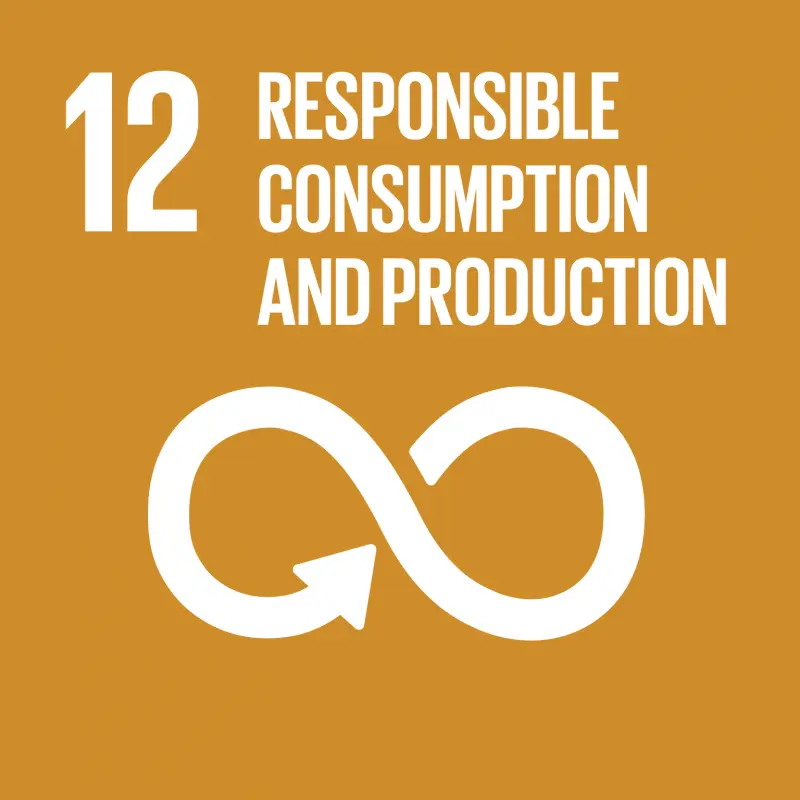
Ensure sustainable consumption and production patterns.
The global material footprint is rapidly growing, outpacing population and economic growth. Should the global population reach 9.6 billion by 2050, the equivalent of almost three planets could be required to provide the natural resources needed to sustain current lifestyles.
How businesses can contribute to SDG 12, responsible consumption and production:
- Implement product portfolio analysis tools to understand environmental and social footprint of products within lifestyles as well as production;
- Enable sustainable consumption by developing innovative solutions can reduce energy need in usage and educate consumers about these benefits;
- Significantly reduce waste and ensure that any unavoidable waste is utilised to the fullest degree.
UN SDG 13 – Climate Action
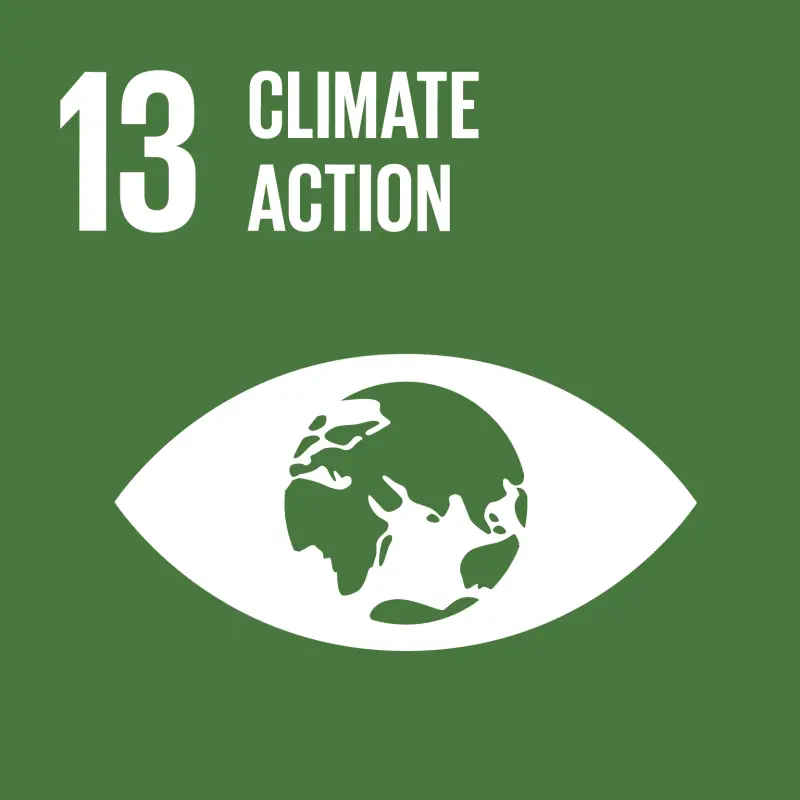
Take urgent action to combat climate change and its impacts.
To limit global warming to 1.5°C, global carbon emissions need to fall to 55% of 2010 levels by 2030 and continue a steep decline to zero net emissions by 2050. And, despite an increase in global climate finance flows, investment in fossil fuels continues to be higher than investment in climate activities.
How businesses can contribute to SDG 13, climate action:
- Source all electricity the company consumes at its facilities from renewable sources;
- Invest in CCS (carbon capture & storage) technology to capture emissions produced from the use of fossil fuels in electricity generation and industrial processes, preventing the carbon dioxide from entering the atmosphere.
UN SDG 14 – Life Below Water
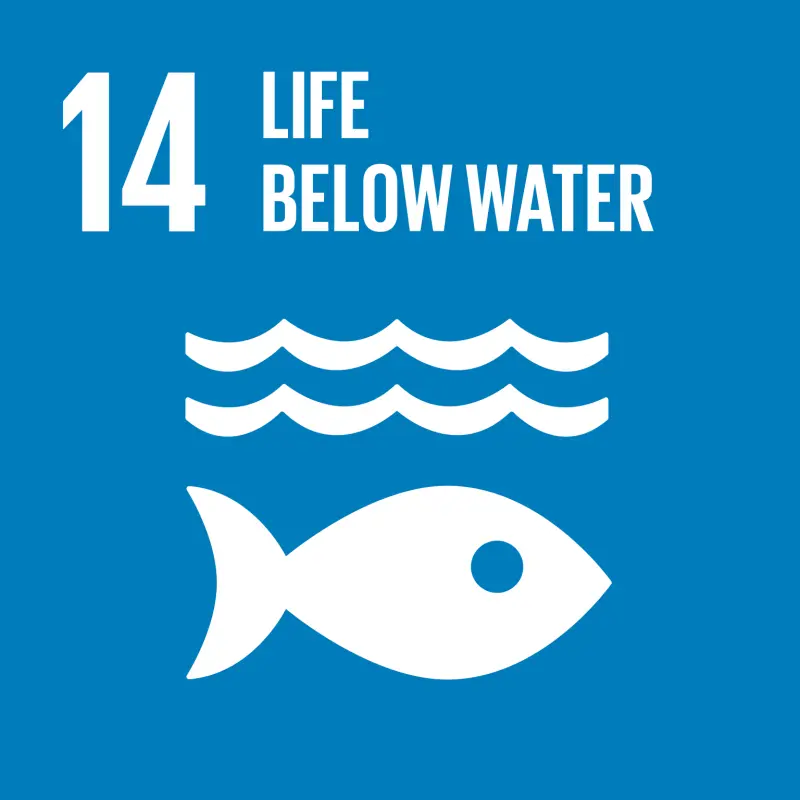
Conserve and sustainably use the oceans, seas and marine resources for sustainable development.
Oceans face the threats of marine and nutrient pollution, resource depletion and climate change, all of which are caused primarily by human actions. Over three billion people depend on marine and coastal biodiversity for their livelihoods.
How businesses can contribute to SDG 14, life below water:
- Raise consumer awareness on effective ways to properly dispose of their waste to discourage littering and promote responsible behaviour;
- Utilise a value-chain approach to create connections between the design, packaging, marketing and recycling of materials with the goals of reducing their environmental impact at the end of their life cycle.
UN SDG 15 – Life On Land
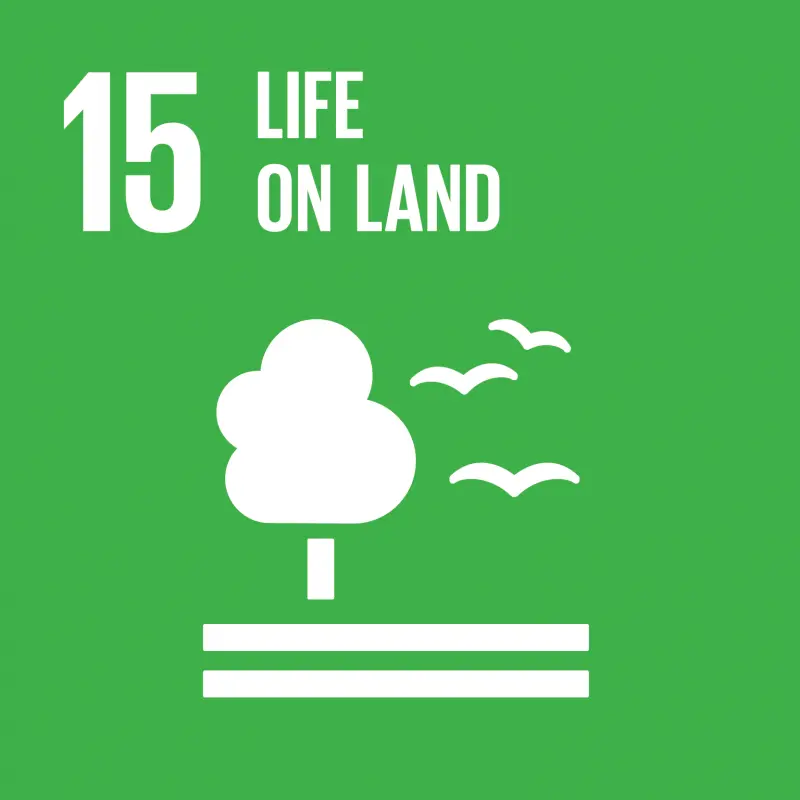
Protect, restore and promote sustainable use of terrestrial ecosystems, sustainably manage forests, combat desertification, halt and reverse land degradation and halt biodiversity loss.
Around 1.6 billion people depend on forests for their livelihood (2015), including 70 million indigenous people. Forests are home to more than 80 per cent of all terrestrial species of animals, plants and insects. However, between 2010 and 2015, the world lost 3.3 million hectares of forest areas.
How businesses can contribute to SDG 15, life on land:
- Measure, manage and mitigate impacts on ecosystems and natural resources;
- Finance the restoration of degraded land for production and/or conservation purposes;
- Foster product and technology innovation to optimise resource efficiency, reduce impacts on ecosystems and lower carbon emissions.
UN SDG 16 – Peace, Justice and Strong Institutions
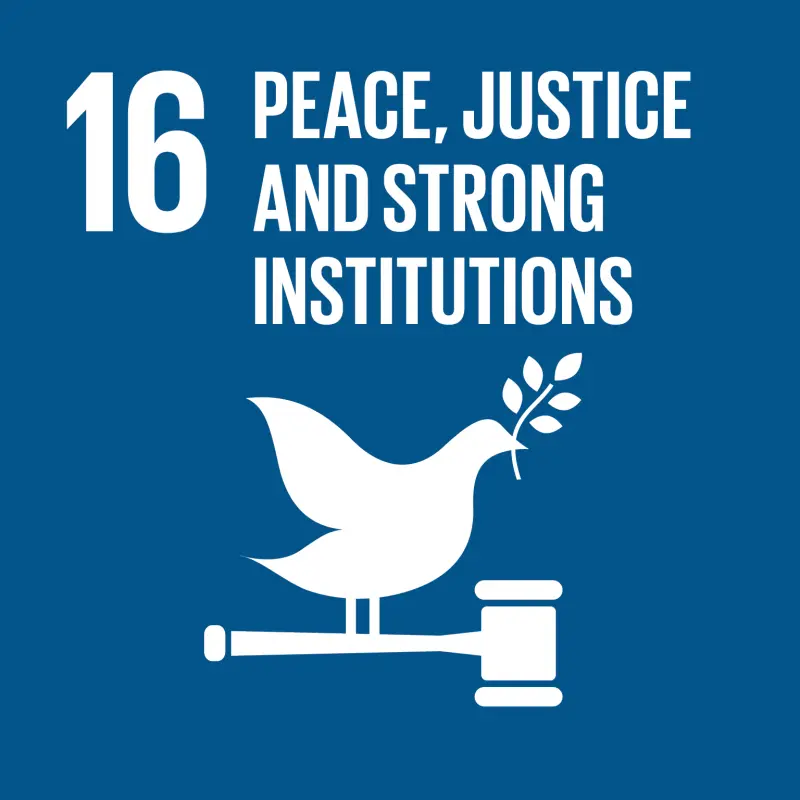
Promote peaceful and inclusive societies for sustainable development, provide access to justice for all and build effective, accountable and inclusive institutions at all levels.
Business thrives in peaceful environments with effective and stable institutions.
Corruption, bribery, theft and tax evasion cost some $1.26 trillion for developing countries per year. This amount of money could be used to lift those who are living on less than $1.25 a day for at least six years.
How businesses can contribute to SDG 16, peace, justice and strong institutions:
- Comply with laws and seek to meet international standards – require and support business partners to do the same;
- Commit to and implement conflict-sensitive, lawful and transparent operational policies and practices, including on human resources, public and corporate procurement, and in the value chain more generally.
UN SDG 17 – Partnership for the Goals
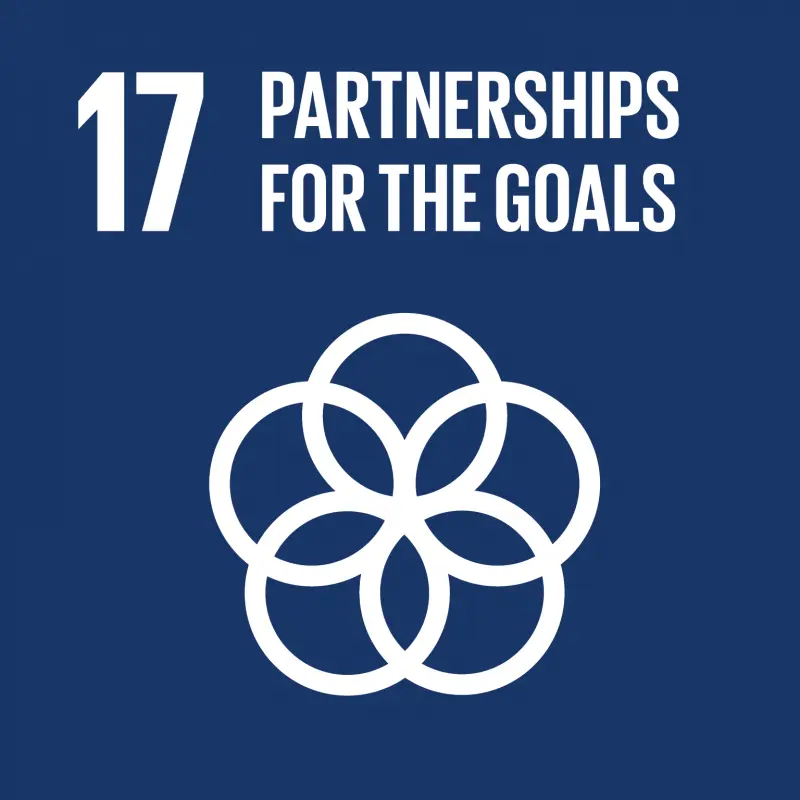
Strengthen the means of implementation and revitalise the global partnership for sustainable development.
Strong international cooperation is needed now more than ever to ensure that countries have the means to achieve the SDGs.
How businesses can contribute to SDG 17, partnerships for the goals:
- Partner up with governments and like-minded organisations and businesses in order to bring SDG implementation further.
Our Projects Supporting the UN Sustainable Development Goals
There are many ways to support the UN sustainable development goals. One of the ways is through verified carbon offset projects with verified benefits against the UN SDGs.
Interest in carbon offsetting has increased considerably over the last few years. Carbon offsets are more than just carbon reductions, they are real projects benefiting real people and communities. For example, clean cook stoves can save families in poverty up to 15% of their household income.
Clean water carbon credits have great benefits to women and children, who are unfairly disadvantaged by lack of access to safe water.
Read more about our carbon offset projects and their wider UN sustainable development goal benefits in the below articles:
- Introduction to carbon offsetting
- Clean cook stoves
- Clean water
- Solar cooking
- Net zero carbon buildings
For further information, please don’t hesitate to get in touch.
Webinar Recap: ICE Insights: Are All EPDs Created Equal?
On Thursday, 22nd May, Circular Ecology hosted the third instalment in the ICE Database Insights [...]
May
Webinar Recap: ICE Insights: ICE Analytical Review Processes
On Wednesday, April 30th, Circular Ecology hosted the second session of our ICE Database Insights [...]
Apr
Webinar Recap: ICE Insights: Data Quality Scoring
On Thursday, April 10th, Circular Ecology launched the first session of our ICE Database Insights [...]
Apr
Webinar Recap: Product Carbon Footprinting, LCA, and EPDs
On Wednesday, April 3rd, Circular Ecology delivered our fourth webinar of 2025: Product Carbon Footprinting, LCA, [...]
Apr
